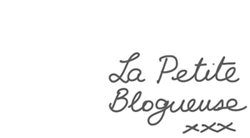Just stumbled upon this article... it's a news article so upper intermediate level I guess. It's quite long so it's good French reading practice and the article is interesting too. Even though I'm not a French expat I'm still an expat so I could relate to most things said.
http://geo-pickmeup.com/le-choc-culturel-inverse-le-tabou-des-expatries-francais/
This part I could relate to a lot, because this is not the first time I'm an expat.
Le choc culturel inversé est un phénomène réel qui touche à différents degrés tous ceux qui ont fait l’expérience de l’expatriation, même courte. Quand on s’intègre dans un nouveau pays, quand on apprend une nouvelle langue, de nouvelles pratiques culturelles, on se bouscule soi-même dans ses convictions. Souvent difficile, la réussite d’une intégration à l’étranger est aussi une grande source de fierté, un accomplissement personnel très valorisant dont on se sent pleinement acteur. Ainsi, revenir au pays peut parfois constituer une plus grande épreuve que de le quitter. C’est la fin d’une aventure, d’une période de découverte permanente, le retour à des conventions inébranlables que rien ne saurait bousculer, encore moins les récits de ceux qui reviennent. On se sent redevenir impuissant, parfois “noyé dans la masse”, et surtout on réalise que les choses n’ont pas changé en notre absence. En revanche, le regard porté sur le pays, lui, a changé. Difficile désormais de jouer le jeu de la normalité sans broncher et de ne laisser filtrer de son pays que le positif quand on a de quoi le comparer.
Reverse culture shock is a real phenomenon that affects all those - to varying degrees - who have had the experience of expatriation, even short ones. When one is part of a new country, learning a new language, new culture, they shove themselves in their convictions. Often difficult, a successful integration abroad is also a great source of pride, a very rewarding personal achievement where one feels like they are the main actor. Thus, returning home can sometimes be a greater test than leaving. It's the end of an adventure, a period of constant discovery, returning to unshakable conventions that nothing can shake, let alone the stories of those who return. You feel powerless sometimes "drowning in the masses" and you especially realize that things have not changed in your absence. In contrast, your outlook on the country he has changed. It's difficult now to play the game of normality without flinching and to see your country through a positive filter when we compare it with what we had before.
La plupart des expatriés qui sont revenus parlent de délais d’un à deux ans pour retrouver leurs marques et réfléchir à leur reconversion qui sera bien souvent nécessaire.Most expatriates who have returned speak of periods of one to two years to find their way and to think about the conversion that will often be necessary.



















